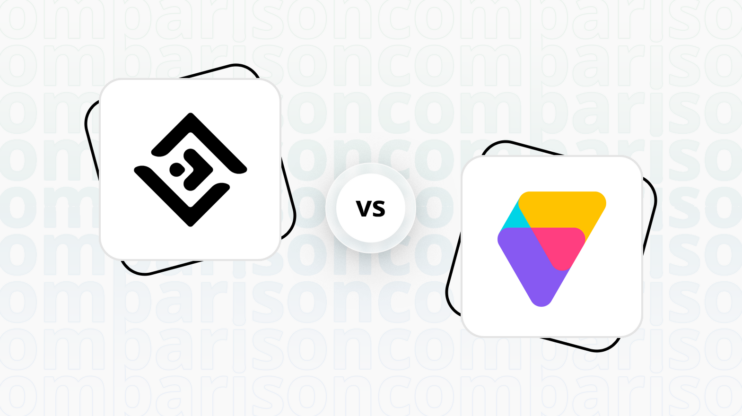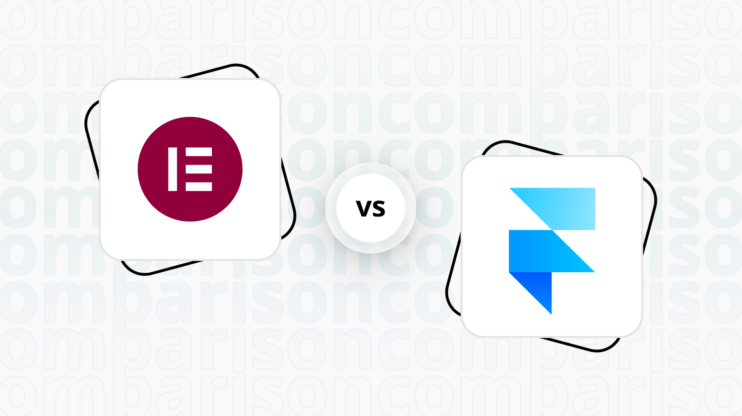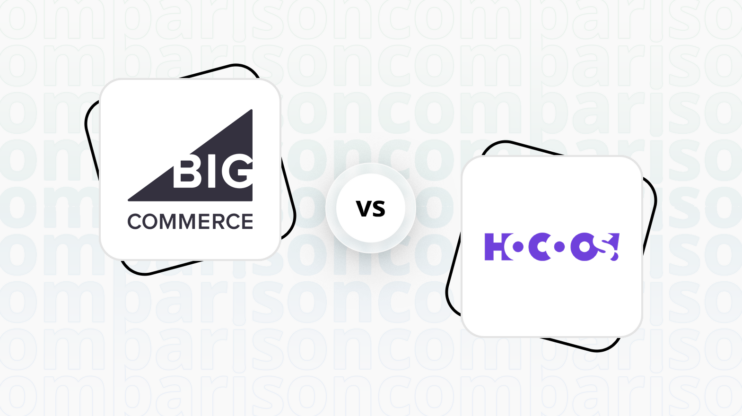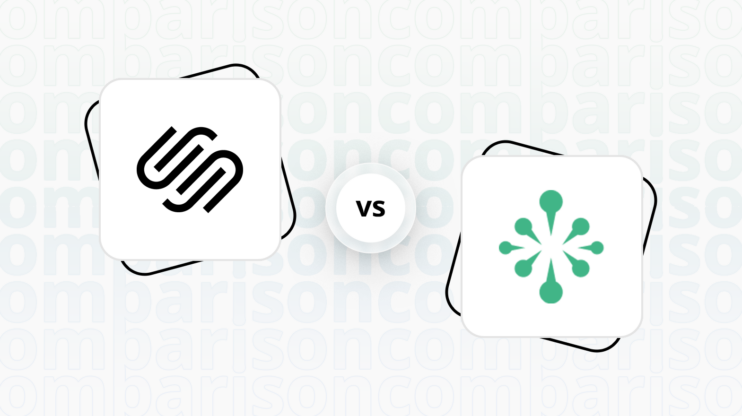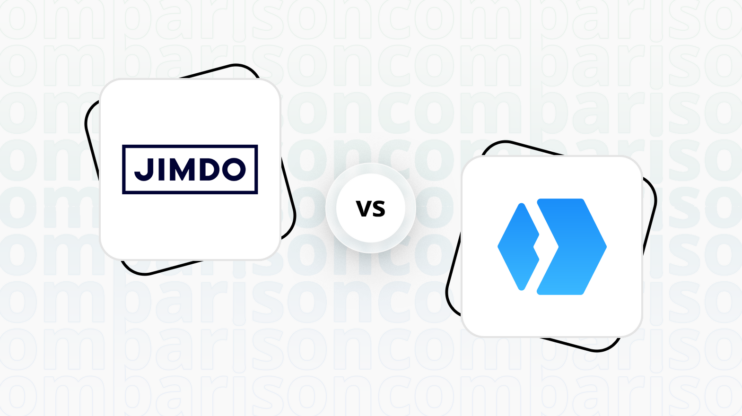Final verdict
Shopify and Siter.io cater to different needs, with Shopify excelling in ecommerce and Siter.io offering a user-friendly design experience.
-
Shopify (Overall Grade: 8.1/10)
is a robust ecommerce platform ideal for businesses looking to scale. It offers comprehensive tools for product management, payment processing, and order fulfillment. Shopify’s advanced marketing features, extensive app integrations, and strong security measures make it a top choice for serious online stores. When comparing Shopify vs Siter.io, Shopify stands out for its ecommerce capabilities and professional templates. -
Siter.io (Overall Grade: 5.1/10)
is designed for users seeking an easy-to-use website builder with a focus on design. Its drag-and-drop interface and Figma integration make it accessible for beginners and experienced designers alike. While it lacks the advanced ecommerce features of Shopify, Siter.io provides a range of templates and design elements suitable for various website types. In the Shopify vs Siter.io comparison, Siter.io is best for those prioritizing ease of use and design flexibility.

|

|
|
|---|---|---|
|
Design functionalities & templates |
8.2 |
7.5 |
|
Ease of use |
7.5 |
8.3 |
|
Ecommerce |
9.2 |
3.4 |
|
Website Editors |
7.9 |
7.8 |
|
Product testing options |
8.1 |
8.2 |
|
Price |
8.2 |
8.1 |
|
Hosting quality |
9.0 |
3.9 |
|
Website speed optimization |
7.8 |
1.5 |
|
Plugins and integrations |
8.7 |
5.5 |
|
Marketing features |
8.8 |
2.6 |
|
Customer support |
8.6 |
4.1 |
|
Security |
9.0 |
6.8 |
|
AI capabilities |
7.9 |
0.0 |
|
User Management |
6.5 |
7.1 |
Best for ecommerce
 9.2
9.2
 3.4
3.4
Verdict
: When comparing Shopify vs Siter.io for ecommerce, Shopify is the clear winner due to its extensive features and scalability, while Siter.io is more suited for basic ecommerce needs.
-
Shopify
: Shopify excels in the ecommerce sector with its comprehensive set of tools for creating and managing online stores. It offers advanced inventory management, multiple payment gateways, and detailed analytics, making it ideal for businesses looking to scale. With a score of 9.2, Shopify is well-equipped to handle the demands of a growing online business. -
Siter.io
: Siter.io, with a score of 3.4, is primarily a website design tool with limited ecommerce functionality. It offers basic features like a shopping cart and checkout but lacks the advanced tools and integrations that Shopify provides. Siter.io is better suited for users who prioritize design flexibility over comprehensive ecommerce capabilities.
Best for informational & business websites
 6.8
6.8
 7.2
7.2
Verdict
: Siter.io is better suited for informational and business websites due to its user-friendly interface and design flexibility, while Shopify, though capable, is more tailored for ecommerce purposes.
-
Shopify
: Shopify, scoring 6.8, is primarily an ecommerce platform. While it can be used for informational sites, its features are more geared towards online stores, making it less ideal for purely informational purposes. The platform’s complexity might be overwhelming for users who only need a simple business website. -
Siter.io
: Siter.io, with a score of 7.2, excels in creating and managing informational websites. Its drag-and-drop interface and unique freehand design tool make it easy for users without coding knowledge to design and customize their sites. The integration with Figma and a range of templates further enhance its suitability for business websites. When comparing Shopify vs Siter.io, Siter.io stands out for its ease of use and design capabilities.
Detailed comparison
Design functionalities & templates
Design FunctionalitiesRepresents how well each platform allows for creative design and customization of websites.Score Components:
- Template Variety (30%): Range and quality of design templates.
- Customization (30%): Flexibility and options for design alterations.
- User Interface (20%): Ease and intuitiveness of the design process.
- Responsiveness (10%): Adaptability to different devices and screen sizes.
- Innovation (10%): Unique design features and tools.
 8.2
8.2
 7.5
7.5
🏆
Winner: Shopify.
If you’re looking for a platform that offers more professional and ecommerce-focused templates, Shopify is the preferred choice.
Shopify’s templates are sleek and professional, ideal for ecommerce sites. They offer a sophisticated look with a focus on online stores. While the free template selection is not large, Shopify’s premium theme store provides a variety of industry-specific options, offering advanced features for a strong brand presence.
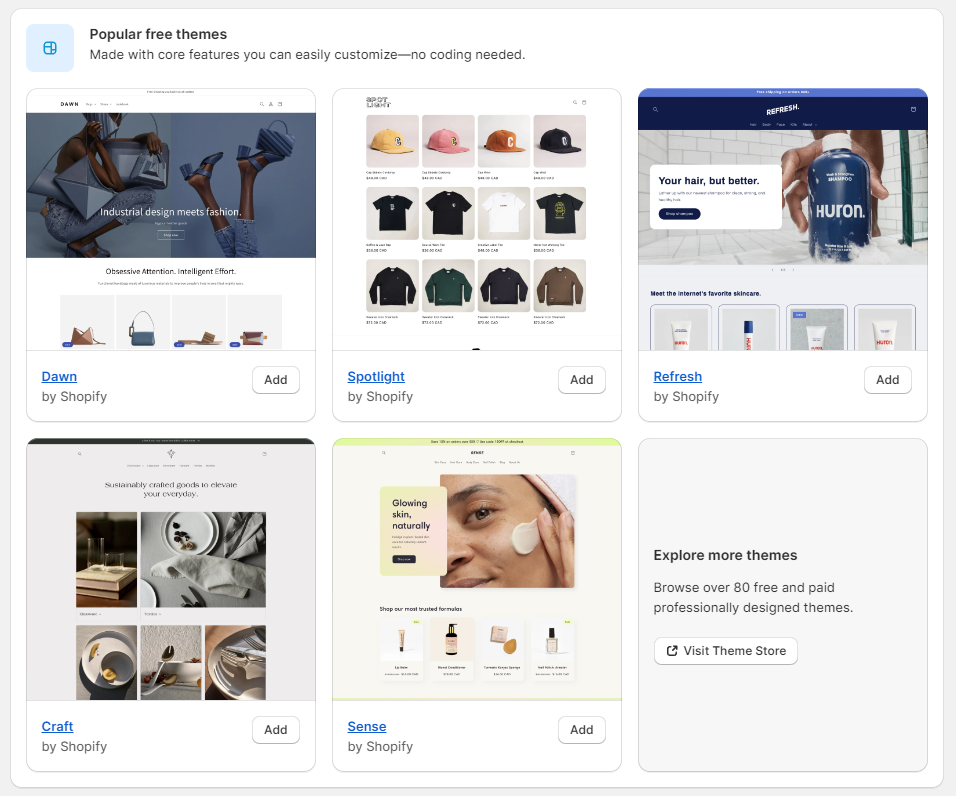
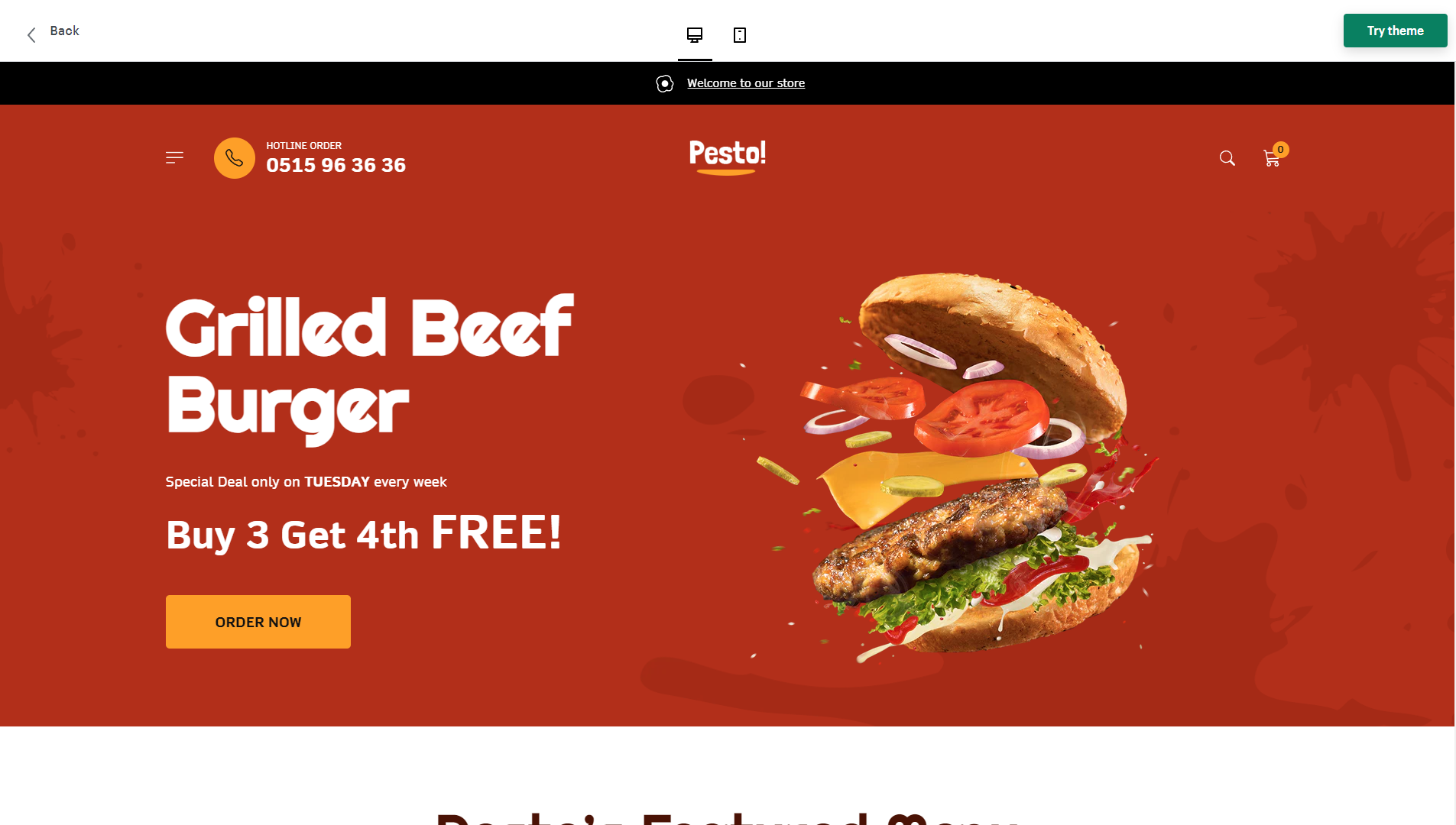
Compared to Shopify, Siter.io includes a handful of customizable templates for various website types, such as landing pages, portfolios, and e-commerce sites, ensuring users can start with a solid foundation and tailor each site to their needs. However, the limited number of templates is compensated with a UI which is very similar to design tools like Figma and AdobeXD. Additionally Siter.io has built in Figma plugin, which helps to export Figma designs directly to Siter.io platform, and make changes and tweaks right on Siter.io.
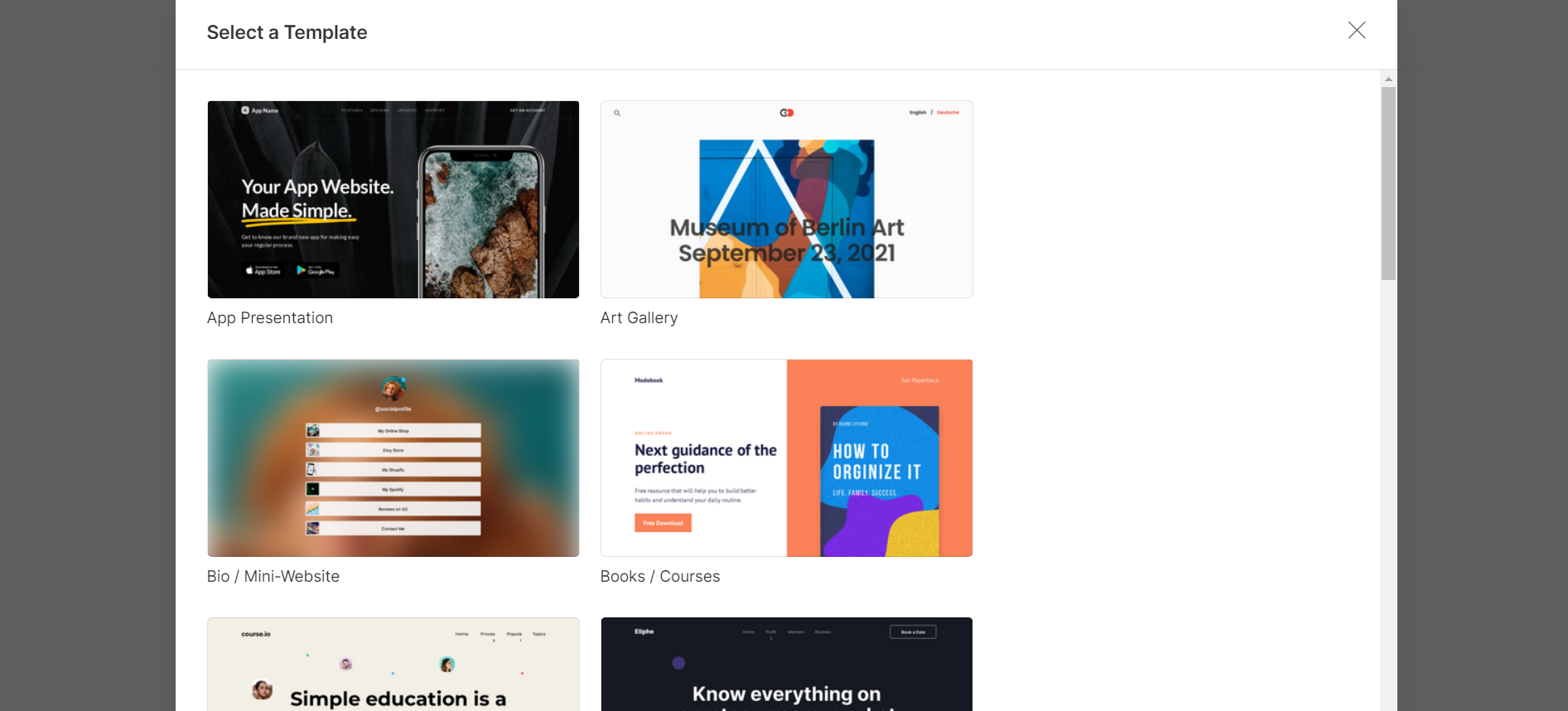

Get a head start on website creation with AI
Create a custom website tailored to your business needs 10X faster with 10Web AI Website Builder!
Ease of use
Ease of useReflects the platform’s overall user-friendliness.Score
Components:
- Learning curve (40%): Quickness and ease of getting started.
- Interface design (30%): Simplicity and intuitiveness of layout.
- User guidance (20%): Quality of tutorials and support.
- Flexibility (10%): Adaptability to various user skills.
 7.5
7.5
 8.3
8.3
🏆 Winner: Siter.io
. Scoring 8.3, Siter.io stands out for its user-friendly interface and unique features like the ability to import designs from Figma, making it exceptionally easy for both beginners and experienced designers to create and manage their websites. Shopify, with a score of 7.5, offers a robust platform but with a steeper learning curve, especially for those new to ecommerce. If ease of use is a priority, Siter.io is the clear winner in this category.
Learning Resources
🏆 Winner: Shopify
. While both platforms offer solid learning resources, Shopify goes a step further with its wide array of detailed tutorials and active community forums, making it easier for users to learn and adapt.
For ecommerce
EcommerceMeasures the platform’s effectiveness in supporting online business activities.Score Components:
- Ecommerce themes and templates (20%): Variety and design of templates.
- Product management (25%): Ease of managing and organizing products.
- Payment options (25%): Variety and convenience of payment methods.
- Ecommerce features (20%): Features for managing an ecommerce store.
- Integration (10%): Compatibility with external e-commerce tools and services.
 9.2
9.2
 3.4
3.4
Shopify is a leading ecommerce platform that provides a comprehensive set of features for online businesses. It offers tools for creating and customizing online stores, managing products, processing payments, and handling order fulfillment. On the other hand, Siter.io is primarily a website design tool with limited ecommerce functionality. While it does allow for the creation of ecommerce websites, its features are quite basic compared to Shopify.

|

|
|
|---|---|---|
|
Ecommerce themes and templates |
8.2 |
4.5 |
|
Product page customization |
8.5 |
6.5 |
|
Payment processing and commissions |
8.8 |
3.0 |
|
POS capabilities |
8.1 |
2.0 |
|
Payment gateways |
9.5 |
3.5 |
|
Product numbers |
9.0 |
2.5 |
|
Additional ecommerce features |
9.1 |
3.0 |
Shopify ecommerce features:
- Comprehensive store builder
- Shopify Payments and other gateways
- Advanced inventory management
- Multi-channel selling
- Abandoned cart recovery
- Detailed analytics and reporting
Siter.io ecommerce features:
- Shopping cart
- Checkout
- Purchase button
Ecommerce themes & templates
Shopify offers about 150 modern responsive themes for creating a virtual storefront, ensuring a good look on both desktop and mobile devices. While some themes are free, others cost between $170 to $380. In contrast, Siter.io has only a few ecommerce specific templates. However, its built-in Figma integration enables the use of a variety of third-party website templates designed in Figma to create a fully functional website directly on the platform.
Product page customization
Shopify allows for three options per product, totaling 100 unique variations. While Shopify offers titles, descriptions, and image galleries with zoom effects, customization options like adding ribbons, size charts, and wishlists are not as straightforward. However, Shopify distinguishes itself with additional features through its extensive library of extra apps, offering functionalities like reviews, Facebook stores, eBay item importers, and a unique Augmented Reality feature for an enhanced customer experience. On the other hand, Siter.io prioritizes its design capabilities, offering a wide range of customization options that are only limited by the user’s skill level.
Payment processing
Shopify offers payments with typical charges of
2.9% + 30¢
per online transaction on basic plans, and lower fees for higher-tier plans. However, it adds extra fees for using other payment gateways. Shopify Payments is Shopify’s own payment processing gateway. It allows merchants to accept credit card payments directly on their store without having to integrate third-party payment providers. This simplifies the payment process, reduces transaction fees, and streamlines the handling of finances. In contrast, Siter.io’s functionality for integrating payment gateways is quite limited. However, it does support custom code injection, enabling users to integrate third-party payment widgets like PayPal or Stripe.
Website Editors
Website EditorsEvaluates the platforms’ website building and editing capabilities.Score Components:
- Customization tools (40%): Range and power of editing features.
- Editor usability (30%): User experience within the editor.
- Design flexibility (20%): Freedom in layout and design changes.
- Update and maintenance ease (10%): Simplicity of updating and maintaining the site.
 7.9
7.9
 7.8
7.8
🏆
Winner: Shopify
. Shopify, with a score of 7.9, excels in providing a streamlined, ecommerce-focused editing experience. It’s particularly beneficial for users who prioritize efficient management of online stores. The editor is straightforward, making it easy to add products, manage inventory, and set up payment methods. Shopify’s editor is optimized for sales and business growth, with built-in tools specifically designed for ecommerce businesses.
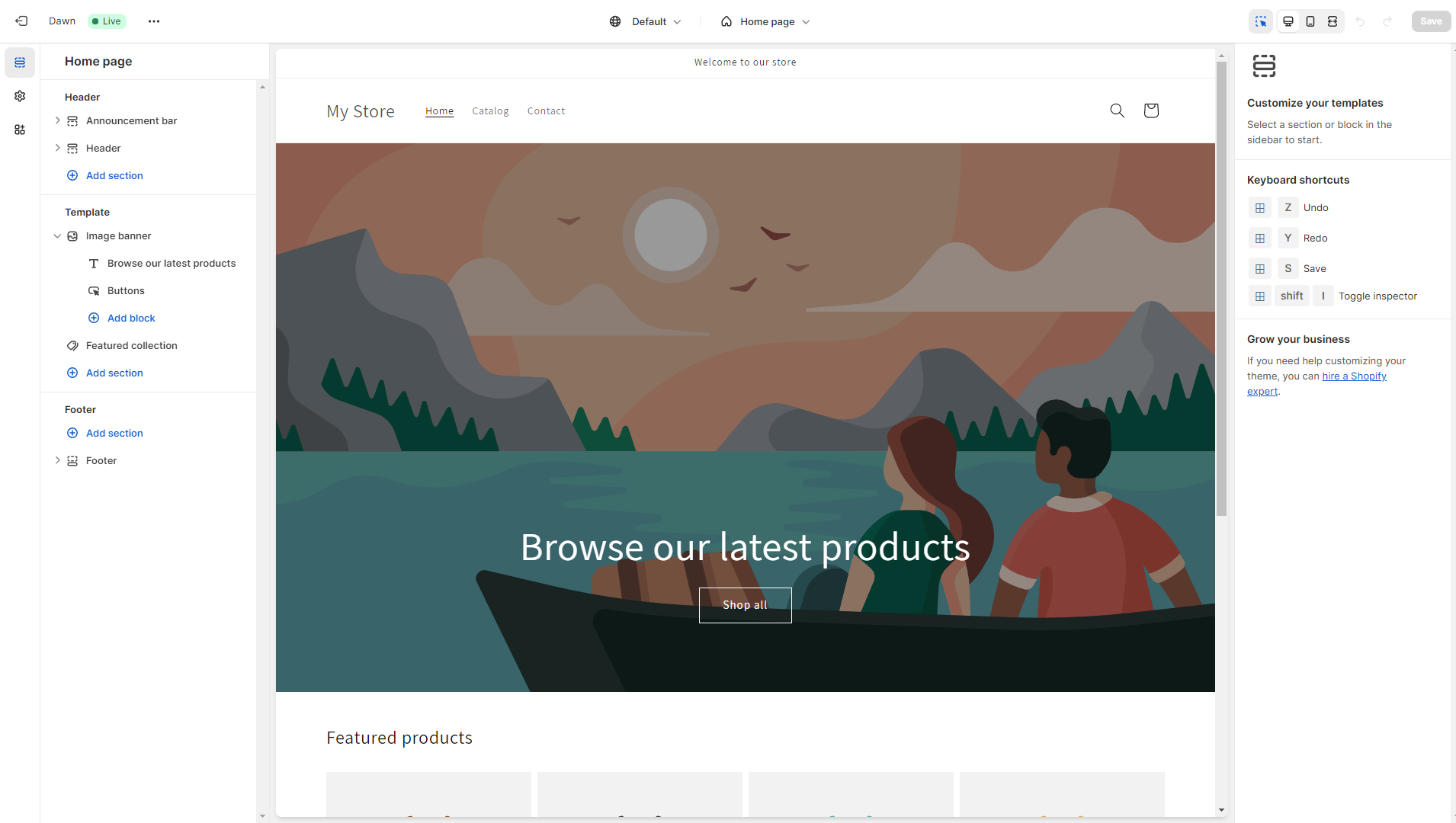
Siter.io’s editor, scoring 7.8, is designed to empower users with the ability to create websites seamlessly without any coding skills. It features an intuitive interface, real-time collaboration, and Figma integration, enhancing productivity and creativity for designers and teams. The editor supports inserting custom code for additional functionality, accessing thousands of free icons, and integrating with Unsplash for high-quality, royalty-free photos.

Mobile editor/app
 8.0
8.0
 0
0
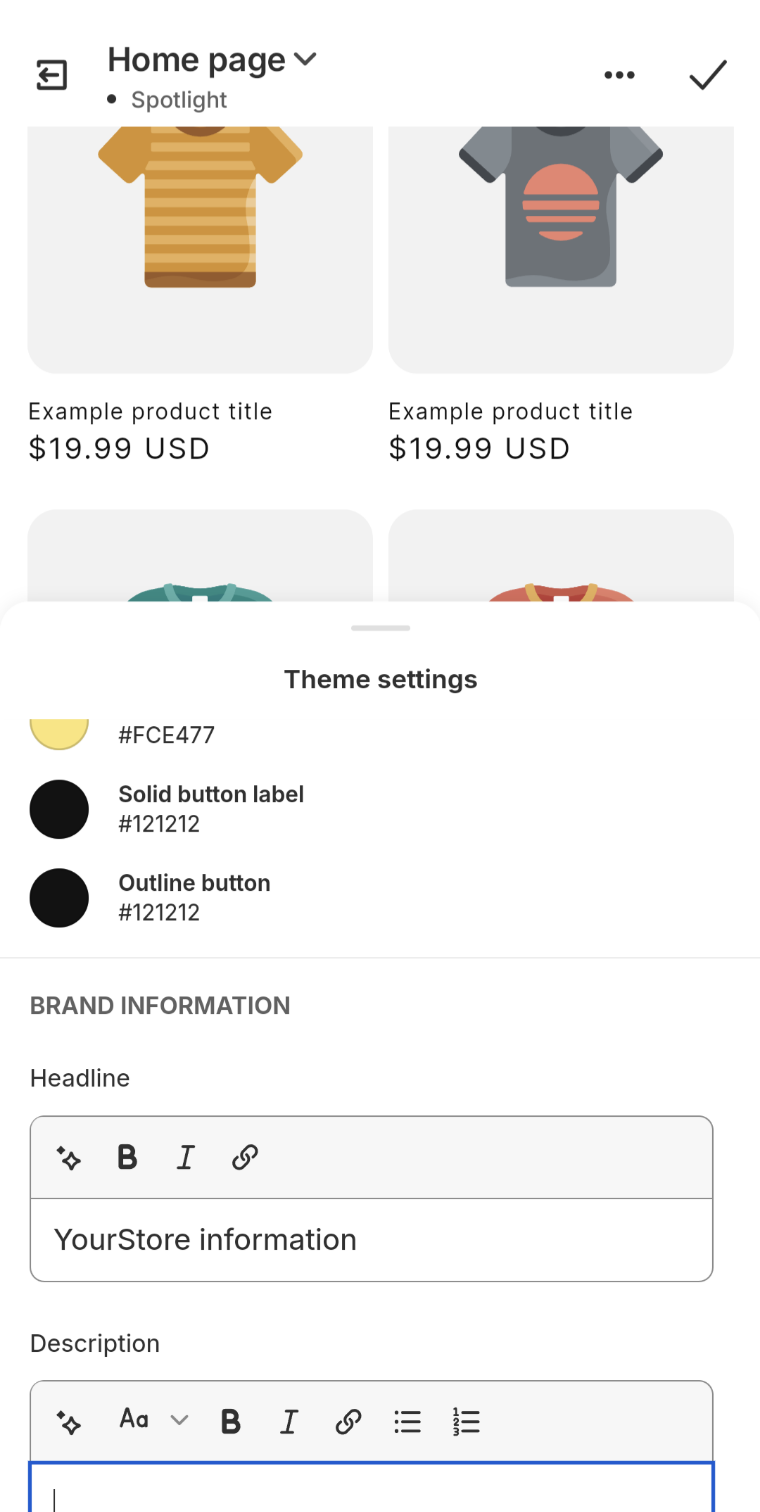
🏆
Winner: Shopify
. Shopify offers a mobile app that includes a user-friendly mobile theme editor. This feature allows users to customize their online store website directly from their mobile device. Users can add, remove, edit, and rearrange content on the store’s website, offering convenient on-the-go adjustments to the store’s appearance and layout.
On the other hand, Siter.io does not have a dedicated mobile editor app. Therefore, in terms of mobile editing capabilities, Shopify is the clear winner.
Product testing options
Product Testing OptionsAssesses the options for trying out platform features before commitment.Score Components:
- Trial quality (40%): Extent and usefulness of the trial or free version.
- Feature accessibility (30%): How many features are available to test.
- Trial duration (20%): Length of the trial period.
- Ease of transition (10%): Smoothness of moving from trial to paid plans.
 8.1
8.1
 8.2
8.2
Overall Result
:
Siter.io wins
. Siter.io scores slightly higher than Shopify with a score of 8.2 compared to Shopify’s 8.1. While Shopify offers a 14-day free trial with access to all features, Siter.io provides a free plan that allows users to test all premium features. However, Shopify offers a 14-day free trial as a form of money-back guarantee, while Siter.io does not offer any money-back guarantee.

|

|
|
|---|---|---|
|
Free Plan |
No (14-day free trial) |
Yes |
|
Trial Duration |
14 days |
No trial version |
|
Testing Premium Features |
All features during free trial |
All premium features with free plan |
|
Money Back Guarantee |
14-day free trial |
No |
Price
PriceLooks at the cost-effectiveness and value for money of each platform.Score Components:
- Plan value (40%): What each pricing tier offers.
- Transparency and clarity (30%): Clearness of pricing structures.
- Flexibility of plans (20%): Range of options to suit different budgets.
- Hidden costs (10%): Additional expenses not included in the plan.
 8.2
8.2
 8.1
8.1
Shopify and Siter.io have different pricing strategies. Shopify’s plans are more expensive but offer a range of features for ecommerce businesses. Siter.io, on the other hand, offers a free plan and its paid plans are cheaper, but it does not have an enterprise plan.

|

|
|
|---|---|---|
|
Free |
No offering at this amount. |
Start (Free/month): Includes unlimited teammates, up to 10 pages, 3 forms, Figma plugin, and SSL certificate. Additional websites are free, and SEO and page speed features are not included. Additionally, it’s not possible to publish any of the websites with the free plan. |
|
$0-$10 |
No offering at this amount. |
Solo ($8/month): For 1 website and includes 2 editors, up to 10 pages, 3 forms, Figma plugin, and SSL certificate. Additional editors cost $4 each. Value for price: 6.0 |
|
$10-$20 |
No offering at this amount. |
Plus ($14/month): Offers 3 websites with 4 editors, up to 50 pages, 5 forms, Figma plugin, and SSL certificate. Additional editors cost $6 each. Value for price: 7.5 |
|
$20-$30 |
Shopify Basic ($29/month): Unlimited products, 2.9% + 30¢ card fee with Shopify payments, Extra 2% gateway fee without Shopify Payments, Abandoned cart recovery, Automated sales tax, Digital products, POS Integration, 2 staff accounts. Value for price: 8.0 |
Pro ($29/month): Provides 5 websites, 6 editors, unlimited pages, unlimited forms, Figma plugin, and SSL certificate. Additional websites cost $8 each. Value for price: 8.5 |
|
$70-$80 |
Shopify Standard ($79/month): Lower card fees (2.6% + 30¢), Gift cards, Professional reports, 5 staff accounts. Value for price: 8.5 |
No offering at this amount. |
|
$200+ |
Advanced Shopify ($299/month): Lowest card fees (2.49% + 30¢), Advanced report builder, Real-time carrier shipping, Up to 15 staff accounts Value for price: 8.8 |
No offering at this amount. |
location. As a result in rare cases the prices displayed here can differ from the ones you see on their
websites.
Hosting quality
Hosting
qualityExamines the reliability and performance of the hosting solutions.Score Components:
- Uptime (40%): Consistency and reliability of website availability.
- Speed (30%): Loading times and performance.
- Bandwidth and storage (20%): Sufficiency of resources provided.
- Data centers (10%): Quality and distribution of hosting infrastructure.
 9.0
9.0
 3.9
3.9
🏆
Winner: Shopify
Shopify’s proprietary cloud-based hosting, with a 99.99% uptime guarantee and 5 global data centers, provides a reliable and robust hosting solution for online stores. Siter.io, on the other hand, lacks transparency in its hosting services, failing to disclose important information such as uptime statistics and data center locations. This results in a lower hosting quality score for Siter.io.

|

|
|
|---|---|---|
|
Do they offer hosting? |
Yes, included in all paid plans |
Yes, but lacks information on bandwidth, storage limitations, and backup options |
|
Data Centers: |
5 globally: USA (Ashburn, Virginia; Santa Clara, California), Canada (Toronto, Ontario), Ireland (Dublin), and Singapore |
Information not disclosed |
|
Type of hosting: |
Proprietary cloud-based hosting |
Cloud-based hosting |
|
Uptime: |
99.99% |
Information not disclosed |
|
Uptime Guarantee: |
Yes, 99.99% |
No |
Website Speed Optimization
Website Speed OptimizationEvaluates optimization of website loading timesScore Components:
- PageSpeed Score (30%): Google’s score indicating performance optimization.
- Loading Time (30%): The average time until a website is fully interactive.
- Mobile Optimization (15%): Optimization effectiveness for mobile devices.
- Resource Optimization (15%): Optimizing images, scripts, and other heavy resources.
- CDN Usage (10%): Use of CDN to enhance speed across geolocations.
 7.8
7.8
 1.5
1.5
🏆 Winner: Shopify
Shopify clearly outperforms Siter.io in terms of website speed optimization. Shopify has a detailed strategy for speed optimization and a higher score, while Siter.io does not disclose specific strategies or statistics about its website speed optimization.

|

|
|
|---|---|---|
|
Focus |
App optimization, Google AMP |
Mobile Responsiveness, SEO optimization |
|
Performance Tools |
Google Lighthouse, PageSpeed Insights |
Not disclosed |
|
Key Strategies |
App efficiency, Theme optimization |
Not disclosed |
|
Load Times |
Varies widely, dependent on optimization |
Not disclosed |
|
Page Speed Scores Range |
Scores vary; influenced by apps, images |
Not disclosed |
|
Core Web Vitals Improvement |
Emphasis on LCP, FID, CLS improvements |
Not disclosed |
Shopify’s approach to enhancing site speed includes app optimization by removing unneeded app code, conditionally loading apps, avoiding immediate pop-up displays, and incorporating app functionality directly into themes. This approach leverages Shopify’s fast servers and CDN network to boost load speed. Shopify also suggests utilizing Google AMP for faster mobile page loads, although with some design compromises. Analysis of three Shopify sites showed a range of Shopify speed scores from 14 to 75, Google PSI scores from 8 to 80, and load times varying from 10.6 seconds to 2.3 seconds. Continuous maintenance and optimization are essential for keeping Shopify stores fast.
On the other hand, Siter.io does not disclose specific strategies or statistics about its website speed optimization. It mentions mobile responsiveness and SEO optimization as part of its strategy, but without any specific details or data to support its effectiveness. This lack of transparency makes it difficult to assess the performance of Siter.io in terms of website speed optimization.
Get a head start on website creation with AI
Create a custom website tailored to your business needs 10X faster with 10Web AI Website Builder!
Plugins and integrations
Plugins and integrationsMeasures the range and effectiveness of additional plugins and integrations.Score Components:
- Variety of options (40%): Range of available add-ons.
- Integration smoothness (30%): Ease of integrating plugins into the site.
- Quality of plugins (20%): Functionality and reliability of the options.
- Custom integration capabilities (10%): Support for custom or third-party integrations.
 8.7
8.7
 5.5
5.5
🏆 Winner: Shopify.
Shopify, with a score of 8.7, offers over 8,000 apps in its App Store, covering a wide range of functionalities. These apps enhance ecommerce by offering advanced sales, marketing, and payment options, among others. On the other hand, Siter.io, with a score of 5.5, offers limited integrations, primarily prioritizing its design capabilities. However, it does support custom code injection, allowing users to incorporate third-party plugins as needed.
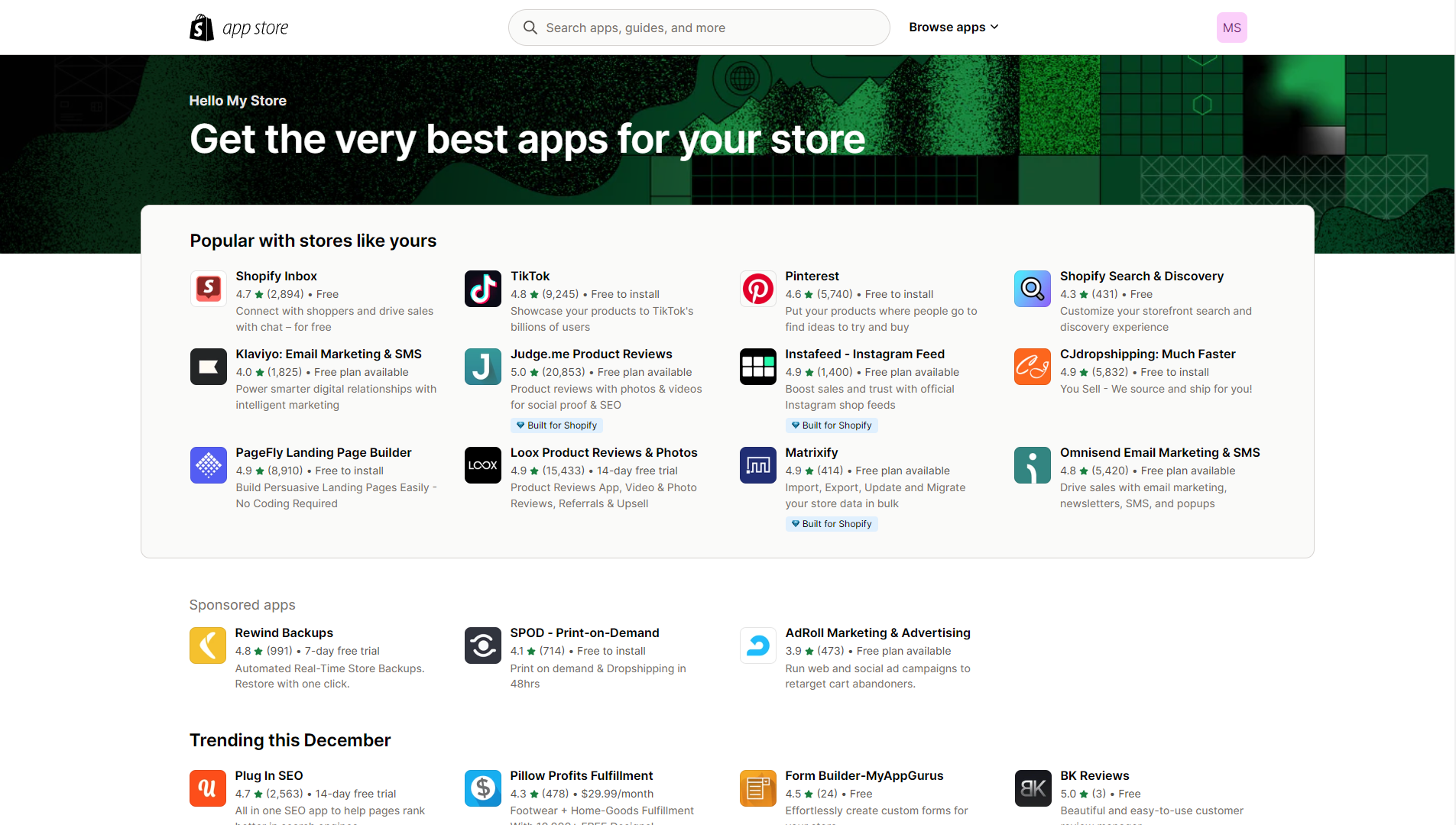
Marketing Features
Design FunctionalitiesRepresents how well each platform allows for creative design and customization of websites.Score Components:
- Template Variety (30%): Range and quality of design templates.
- Customization (30%): Flexibility and options for design alterations.
- User Interface (20%): Ease and intuitiveness of the design process.
- Responsiveness (10%): Adaptability to different devices and screen sizes.
- Innovation (10%): Unique design features and tools.
 8.8
8.8
 2.6
2.6
Overall Winner: Shopify
. Shopify stands out for its comprehensive marketing tools, especially in email marketing, advanced social media integration, and sophisticated ad campaign management. Siter.io, while offering basic SEO features and the possibility to design a simple blog, lacks in email marketing and social media integration.

|

|
|
|---|---|---|
|
SEO Tools |
|
Basic |
|
Email Marketing |
|
|
|
Blogging |
|
Simple blog design |
|
Social Media Integration |
Advanced integration for selling directly on social platforms |
|
|
Analytics and Reporting |
Detailed analytics for in-depth insights |
Google analytics integration |
|
Ads and Promotions |
Google Ads integration; sophisticated ad campaign management |
Facebook Pixel integration |
Customer Support
Customer supportEvaluates the quality and availability of support options.Score Components:
- Response time (40%): Speed of support responses.
- Support quality (30%): Effectiveness and helpfulness of the support.
- Availability (20%): Range of support channels (phone, chat, email).
- Resource richness (10%): Quality of self-help and educational materials.
 8.6
8.6
 4.1
4.1
🏆 Winner: Shopify
. Comparing Shopify vs Siter.io, Shopify stands out with its 24/7 customer support available through chat, email, and phone. The platform also offers clear tutorials, an extensive community forum, and a valuable marketing blog, ensuring users have multiple resources to resolve their issues efficiently.
On the other hand, Siter.io primarily relies on its help center and articles for customer support. While email support is available, the lack of specified support hours and limited support channels make it less reliable compared to Shopify. This significant difference in support quality is reflected in the customer support scores, with Shopify scoring 8.6 and Siter.io scoring 4.1.
Security
SecurityLooks at the platforms’ security measures and data protection.Score Components:
- Data protection (40%): Safeguards for user and customer data.
- SSL and encryption (30%): Implementation of secure connections.
- Compliance (20%): Adherence to industry security standards.
- Regular updates (10%): Frequency of security updates and patches.
 9.0
9.0
 6.8
6.8
🏆
Winner: Shopify
. Shopify’s focus on security is paramount, offering robust protection with SSL certificates, PCI compliance, and regular updates to safeguard against threats. This is especially vital for ecommerce sites dealing with sensitive customer data. Shopify’s infrastructure is designed to provide high-level security, giving store owners and customers peace of mind.
Siter.io, on the other hand, does not provide detailed information about its security measures, apart from offering free SSL certificates. While it does prioritize user privacy with a zero-knowledge storage system and multi-factor authentication, the lack of transparency about its security measures is a concern. Therefore, Shopify is the clear winner in this comparison.
AI Capabilities
AI capabilitiesMeasures the effectiveness of AI-driven features and tools.Score Components:
- Automation efficiency (40%): Impact of AI on streamlining processes.
- Personalization (30%): AI-driven customization for users or customers.
- AI-Assisted design (20%): Role of AI in website design and functionality.
- Data analysis (10%): Use of AI in interpreting user data and analytics.
 7.9
7.9
 0.0
0.0

|

|
|
|---|---|---|
|
Personalized Design |
Shopify AI Builder offers personalized design suggestions |
|
|
SEO Optimization |
AI-driven recommendations for better search engine visibility |
|
|
Customer Behavior Analysis |
Advanced analytics to understand customer preferences |
|
|
Sales Predictions |
AI-powered sales forecasting tools |
|
|
Inventory Management |
AI tools to assist in efficient inventory handling |
|
|
Content Generation |
Shopify’s AI features Content Assistant for content generation |
|
🏆 Winner: Shopify
. Shopify, with a score of 7.9, utilizes AI mainly to enhance the ecommerce experience. Its AI features focus on customer behavior analysis, personalized shopping experiences, inventory management, and sales predictions.
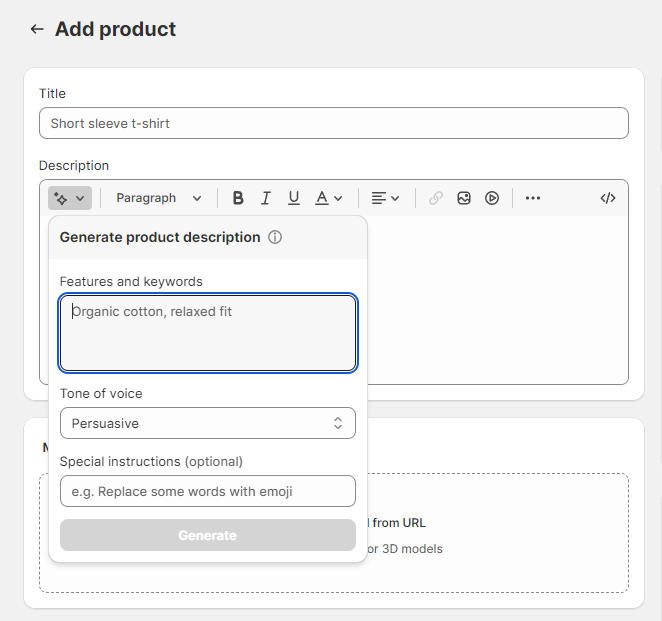
Siter.io, on the other hand, does not have any AI capabilities. This is a significant disadvantage as AI can greatly enhance the user experience and efficiency of website building and management.
User Management
User ManagementAssesses the platforms’ capabilities in managing user roles, permissions, and accessibility.Score Components:
- Role Customization (40%): Flexibility in creating and defining user roles and
permissions. - Ease of Management (30%): User interface and tools for managing users.
- Access Control (20%): Effectiveness of access control measures for different user
levels. - Scalability (10%): Ability to manage a growing number of users efficiently.
 6.5
6.5
 7.1
7.1
🏆 Winner: Siter.io
. Managing your online team with Shopify and Siter.io involves different approaches to website editing access.
-
Shopify enforces staff account limits based on plans, ranging from 2 to 15, with Shopify Plus offering unlimited
accounts. Collaborators with limited access are also an option. - Siter.io focuses on its real-time collaborative features, offering varying numbers of editors depending on the plan. Each plan provides access for 2 to 6 editors who can edit and design websites, with the option to include additional editors for an extra fee.
Shopify User Roles and Access Levels:
| Role | Description | Access Highlights |
|---|---|---|
| Store Owner | Full control over store | Manage products, orders, discounts, payments, apps, settings. Create and manage staff accounts. |
| Staff | Configurable access by owner |
Add/edit products, manage orders, fulfill orders, manage customers, update content. Access level can be customized by the owner. |
| Collaborator | Limited access for external partners | View and manage specific sections like blog or product categories. Cannot access full store settings. |
Additional Features

|

|
|
|---|---|---|
|
SSL Certificate |
|
|
|
Custom Domain |
|
|
|
Free Custom Domain Included |
|
|
|
International Domains |
|
|
|
Mobile Responsive |
|
|
|
Page Speed |
|
|
|
Website Builder Mobile App |
|
|
|
Convert a Website To An App |
|
|
|
Website Analytics |
|
|
|
Multilingual Sites |
|
|
|
Multiple Users |
|
|
User Feedback
Shopify’s slightly higher rating on G2 Crowd can be largely attributed to its specialization in ecommerce. Its comprehensive features, ease of use, and robust customer support cater specifically to online businesses, leading to high user satisfaction among those seeking a dedicated ecommerce solution.
Overall, users appreciate Siter.io for its user-friendly interface and robust features, such as the drag-and-drop editor and customizable templates, making website building accessible to teams without coding expertise. However, there’s a consensus that the platform could improve its integration options to enhance workflow efficiency further. Nevertheless, Siter.io effectively addresses the challenge of website creation without coding skills, benefiting designers, small business owners, and individuals seeking to establish an online presence or portfolio quickly and efficiently.
The making of this blog
We followed a clear, step-by-step process to write and research this article.
FAQ
Which platform is better for ecommerce, Shopify or Siter.io?
Can I design a website without coding knowledge on both platforms?
How do Shopify and Siter.io compare in terms of pricing?
Which platform offers better customer support?
Are there any significant differences in website speed optimization between the two platforms?










